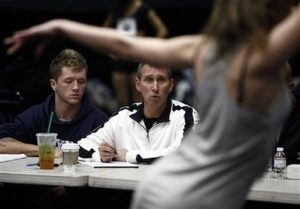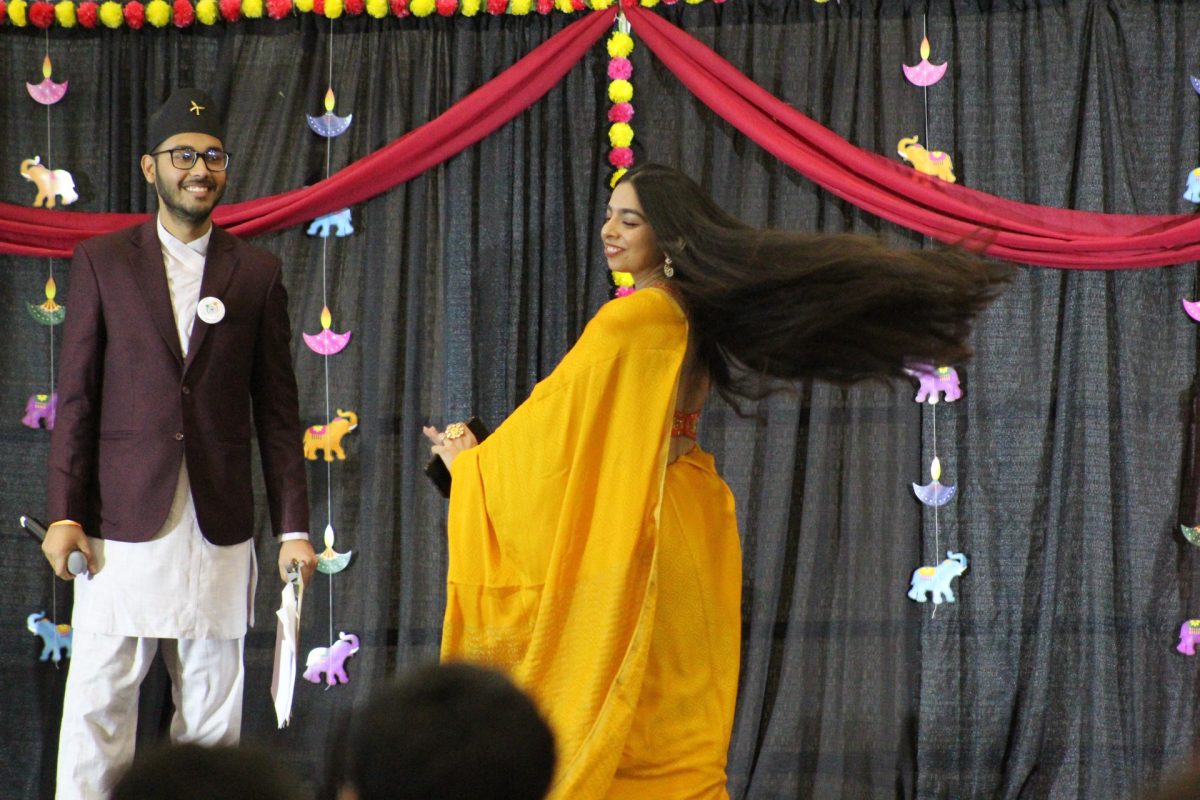BURBANK, Calif. – Lined up in sweats and leotards, hundreds of sinewy dancers wait with paper numbers pinned to their chests and a singular hope within. Under gray, rainy skies, in dance shoes and bare feet, they’ve come to an open audition at a place called Center Staging with one dream: dancing on the Academy Awards.
No. 149, April Thomas, brought her bundled-up 9-month-old son Kerrick along in his stroller. No. 37, Leah Adler, stretches and warms up after waiting outside in the rain. No. 26, the one-named Malaya, stands quietly in a crowd of her colleagues.
At the front of a nondescript room sits Academy Awards producer and choreographer Adam Shankman, who got his first big Oscar break as a dancer on the show 20 years ago. Flanked by some of the industry’s top choreographers, Shankman presides over Friday’s audition.

“I’ll put on some soft music so that we can talk about you behind your back,” he says to the group with a warm smile. He then separates the dancers by gender, lines them up and asks each to perform a pair of ballet moves — a double pirouette and an arabesque that take just seconds to complete.
Instantly, more than half of the would-be performers are eliminated.
Nos. 26, 37 and 149 make the first cut.
“I just love to dance. And the Academy Awards, you can’t get better than that,” says Thomas, No. 149, snuggling her baby boy.
“Honestly, I just want to work and be on a big stage,” says Adler, No. 37, who belonged to a dance company in New York before relocating to the West Coast. “Everyone wants to book that big gig with that big choreographer.”
Shankman is among the biggest in the business these days. The director and choreographer of the 2007 film Hairspray and regular judge on TV’s So You Think You Can Dance has collected more than three dozen choreography credits since 1992, and it was partly his dance prowess that got him the Oscar producing gig.
He invites those who made the first cut to return to the room, where two of his assistants begin teaching a brief dance routine filled with leaps, twists and spins.
Shankman, lithe and fit in black track pants, black socks and a white warm-up jacket, steps out from behind the table to show the aspiring performers just what he’s looking for.
“If your arms are here, I’ll freak out,” he says, his arms hanging limp near his chest. “And you don’t want that.”
They run through the routine a few times, first with counts, then with music.
“It’s playful and whimsical and I’m seeing hard, angry jazz,” he coaches. “Feel the music. Let it lift you.”
Shankman divides the dancers into groups of five. Each performs the routine twice. As Nos. 37, 26 and 149 wait their turn, they pantomime the moves to the music.
No. 37 is called to perform. She leaps effortlessly, light as air, her black bodysuit taut against every muscle.
“Numbers 37, 66 and 122, come up and get a green wristband,” says associate choreographer Jamal Sims. The green wristband means they’re still in the running and will have another opportunity to perform for Shankman and his team.
No. 26, who has the lean, muscular body of an Olympic swimmer, is up. Her group performs, and Shankman says, “No. 26, could you smile please?”
They perform again, and No. 26 is rewarded with a green wristband.
It’s No. 149’s turn. As a friend holds her little boy, she performs, her muscular legs seemingly weightless. She dances twice with the group, but afterward, her number isn’t called.
For No. 149, the audition is over. She collects her things in the baby stroller and steps into the hallway, where she changes her son’s diaper on a metal folding chair.
“Oh well,” the now-former No. 149 says with a sigh. But she could return for another dance audition the following day, when Shankman will be testing for a hip-hop routine.
She says she might.





